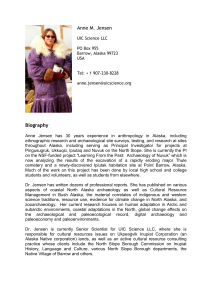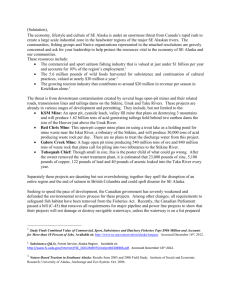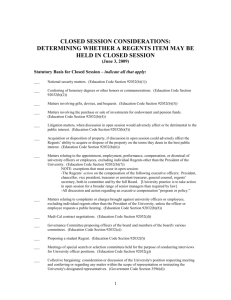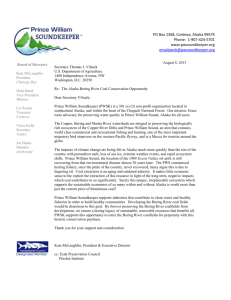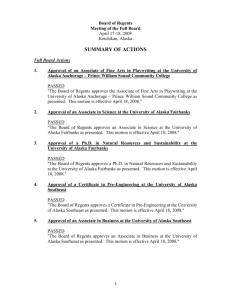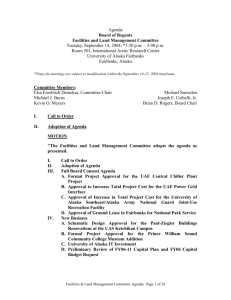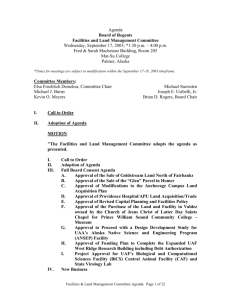We are writing concerning a recent decision of the University of
advertisement
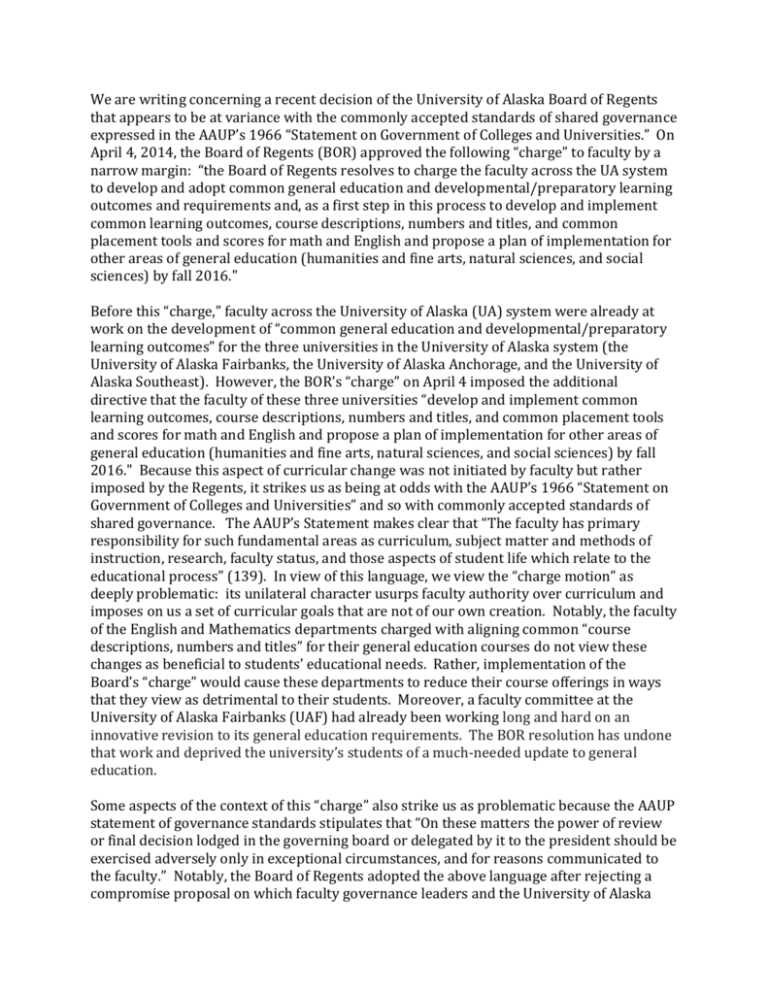
We are writing concerning a recent decision of the University of Alaska Board of Regents that appears to be at variance with the commonly accepted standards of shared governance expressed in the AAUP’s 1966 “Statement on Government of Colleges and Universities.” On April 4, 2014, the Board of Regents (BOR) approved the following “charge” to faculty by a narrow margin: “the Board of Regents resolves to charge the faculty across the UA system to develop and adopt common general education and developmental/preparatory learning outcomes and requirements and, as a first step in this process to develop and implement common learning outcomes, course descriptions, numbers and titles, and common placement tools and scores for math and English and propose a plan of implementation for other areas of general education (humanities and fine arts, natural sciences, and social sciences) by fall 2016." Before this “charge,” faculty across the University of Alaska (UA) system were already at work on the development of “common general education and developmental/preparatory learning outcomes” for the three universities in the University of Alaska system (the University of Alaska Fairbanks, the University of Alaska Anchorage, and the University of Alaska Southeast). However, the BOR’s “charge” on April 4 imposed the additional directive that the faculty of these three universities “develop and implement common learning outcomes, course descriptions, numbers and titles, and common placement tools and scores for math and English and propose a plan of implementation for other areas of general education (humanities and fine arts, natural sciences, and social sciences) by fall 2016." Because this aspect of curricular change was not initiated by faculty but rather imposed by the Regents, it strikes us as being at odds with the AAUP’s 1966 “Statement on Government of Colleges and Universities” and so with commonly accepted standards of shared governance. The AAUP’s Statement makes clear that “The faculty has primary responsibility for such fundamental areas as curriculum, subject matter and methods of instruction, research, faculty status, and those aspects of student life which relate to the educational process” (139). In view of this language, we view the “charge motion” as deeply problematic: its unilateral character usurps faculty authority over curriculum and imposes on us a set of curricular goals that are not of our own creation. Notably, the faculty of the English and Mathematics departments charged with aligning common “course descriptions, numbers and titles” for their general education courses do not view these changes as beneficial to students’ educational needs. Rather, implementation of the Board’s “charge” would cause these departments to reduce their course offerings in ways that they view as detrimental to their students. Moreover, a faculty committee at the University of Alaska Fairbanks (UAF) had already been working long and hard on an innovative revision to its general education requirements. The BOR resolution has undone that work and deprived the university’s students of a much-needed update to general education. Some aspects of the context of this “charge” also strike us as problematic because the AAUP statement of governance standards stipulates that “On these matters the power of review or final decision lodged in the governing board or delegated by it to the president should be exercised adversely only in exceptional circumstances, and for reasons communicated to the faculty.” Notably, the Board of Regents adopted the above language after rejecting a compromise proposal on which faculty governance leaders and the University of Alaska administration had collaborated. In so doing, the BOR rejected faculty judgment in matters of curriculum, but did not present any educationally sound reasons for so doing. Nor did they offer any evidence of “exceptional circumstances” informing their decision. The Board’s lack of a credible rationale for its usurpation of faculty authority over curriculum stands out as especially shocking and as out of keeping with the standards of shared governance articulated in the 1966 AAUP statement. University of Alaska system President Patrick Gamble asserted in his discussion of the “charge motion” at the April 7, 2014 UAF Faculty Senate meeting that Alaska’s constitution gives the Board of Regents the authority to manage the university’s curriculum. However, our examination of the relevant statutes reveals no clear and specific indication that the Board’s authority extends to curriculum. We have attached copies of the Bylaws of the Board of Regents as well as Article 7 of the Alaska Constitution. The former document states (in BL01.B.2) that “The board shall, in accordance with law, formulate policy” and (in BL03) that “The board will be responsible for the governance of the university as provided by the Constitution of the State of Alaska and the laws enacted pursuant thereto.” The latter document states that “The University of Alaska shall be governed by a board of regents” and that “The board shall, in accordance with law, formulate policy.” We question whether this very vague and broad language must necessarily be interpreted to extend the authority of the Board of Regents to curricular matters. We would appreciate your opinion on this question, as we are skeptical that this vague language renders the BOR’s usurpation of faculty authority over curriculum acceptable. We would also appreciate hearing from you about whether you believe that these actions of the University of Alaska are so much at variance with commonly accepted standards of shared governance that they would warrant censure from the AAUP. Thank you in advance for your assistance.




